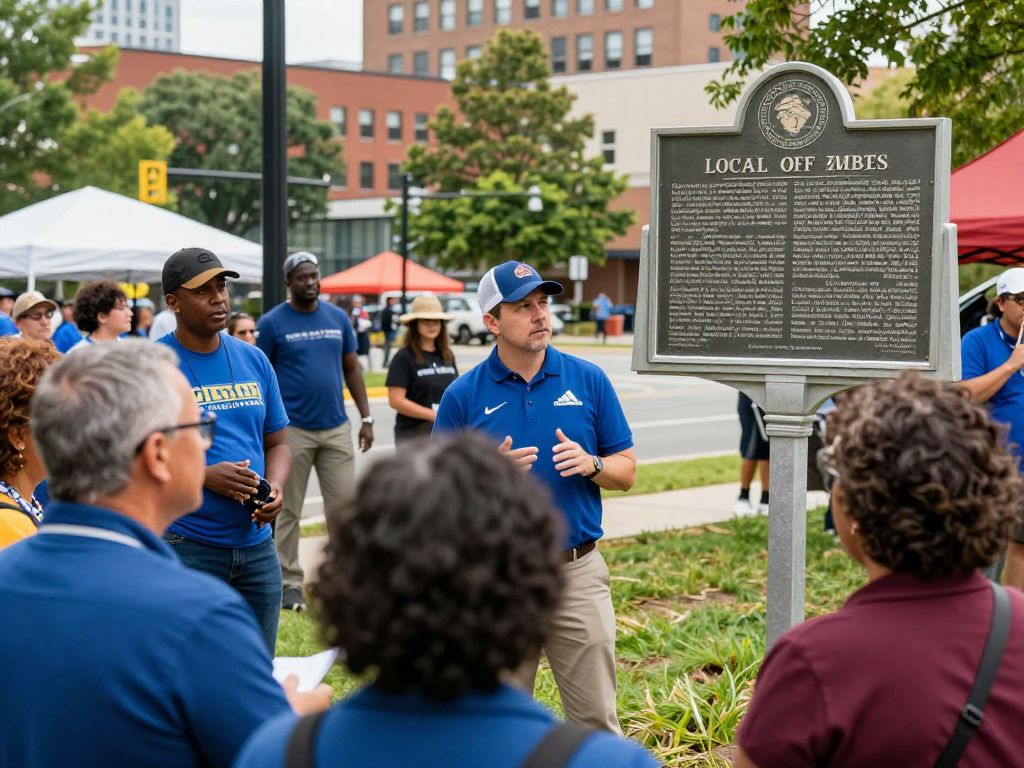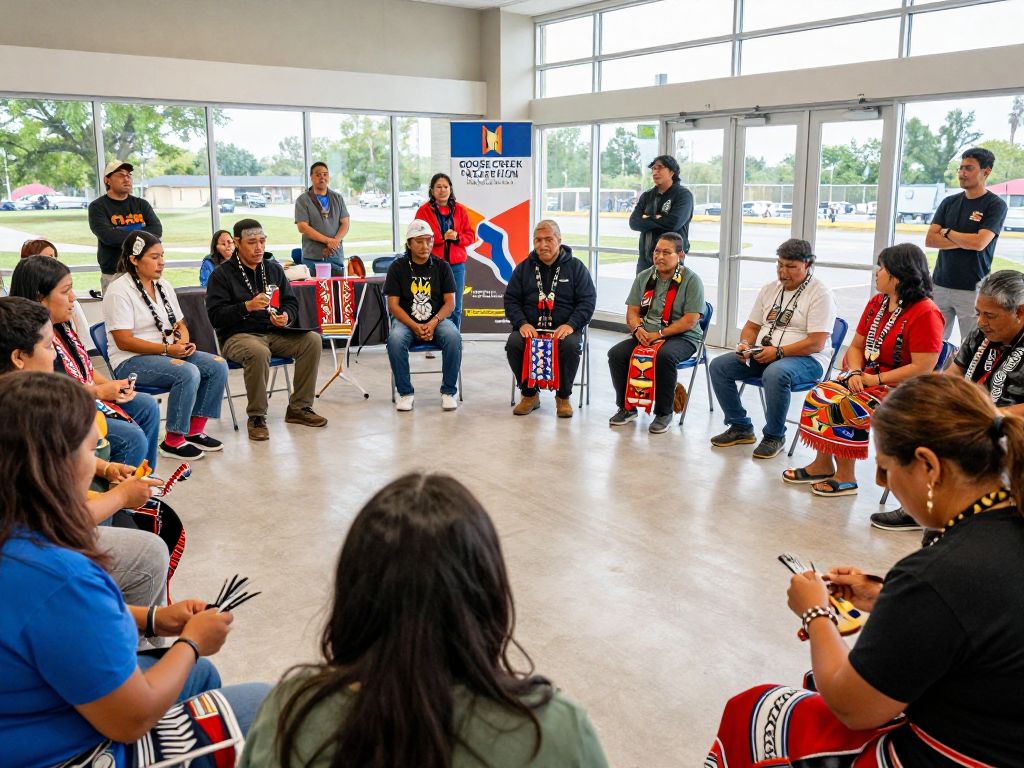News Summary
The Charleston County School District collaborates with Charleston Southern University to introduce the CSU-CCSD Collegiate Pathways Program. This initiative allows high school students to earn college credits while completing their secondary education. Starting this fall, the program will pilot at three high schools, providing opportunities for both juniors and seniors, as well as a cohort of ninth-graders, to gain valuable early exposure to college-level coursework. The program aims to make higher education more accessible and affordable for local students.
Charleston, SC
The Charleston County School District (CCSD) has joined forces with Charleston Southern University (CSU) to launch a new dual enrollment initiative called the CSU-CCSD Collegiate Pathways Program. This program aims to give high school students an opportunity to earn college credits while still pursuing their secondary education.
The program was officially announced on Wednesday and will begin piloting at three local high schools: North Charleston High School, R.B. Stall High School, and St. John’s High School this upcoming fall semester. The initiative targets eligible juniors and seniors at Stall High School and North Charleston High School, providing 15-20 students from each of these schools the chance to earn transferable college credit.
At St. John’s High School, a different approach will be taken by welcoming a cohort of 15-20 ninth-grade students into the program. This diverse enrollment strategy aims to cater to a broad range of students, ensuring that more young people can take charge of their academic journeys.
Eligibility and Structure
To be eligible for the CSU-CCSD Collegiate Pathways Program, students must maintain at least a 3.0 unweighted GPA and undergo a formal application process. This requirement is put in place to ensure that participants are prepared for the rigors of college-level coursework. Instruction will be delivered virtually, facilitating accessibility for students from various backgrounds, while a staff member from the school district will provide supervision and academic support throughout the program.
Financial Considerations
One of the key benefits of this initiative is that tuition will be fully covered by CCSD. Students will only need to pay a small participation fee, making this opportunity even more attainable for high school students looking to advance their educational prospects without incurring significant costs.
Partnership Goals
CCSD Superintendent Anita Huggins expressed gratitude for the partnership with CSU, suggesting that this collaboration holds the potential to significantly expand educational opportunities for students within the district. The initiative not only focuses on dual enrollment but also aims to pave the way for direct admissions and other educational prospects that are currently being developed.
Dr. Anthony Turner, Vice President for Enrollment at CSU, also noted the excitement surrounding this partnership, emphasizing a shared commitment to enhancing educational opportunities for students in the Charleston community.
Background of Dual Enrollment Initiatives
Dual enrollment programs have been gaining traction across the United States as educational institutions recognize the benefits of allowing high schoolers to experience college-level courses. These programs are designed to help students transition smoother into post-secondary education, as they not only gain valuable credit but also an understanding of college expectations and environment while still in a supportive high school setting.
Researchers and educators highlight that early exposure to college courses can lead to increased engagement, motivation, and a greater likelihood of completing higher education successfully. Moreover, such initiatives can reduce the overall cost of college by enabling students to earn credits before even graduating high school, which can lessen their financial burden in the long run.
The CSU-CCSD Collegiate Pathways Program serves as a landmark opportunity for eligible students in Charleston County, providing them access to higher education resources while still attaining their high school diplomas. As this initiative takes off this fall, it will be closely monitored for its effectiveness and potential for expansion to more schools and students in the future.
Deeper Dive: News & Info About This Topic
HERE Resources
Harvard University Challenges Trump Administration Over International Students
Trump Administration’s Ban on International Students Sparks Legal Firestorm
Harvard University Faces International Enrollment Crisis
North Charleston Revamps High School Graduation Policies
Lawyer Raises Concerns Over CHEST Journal’s Editorial Independence
Charleston Debates School Funding Disparities
Rising Concerns Over Medicaid Funding Cuts Spark Anxiety Among Residents
House Republicans Propose Major Cuts to Medicaid Funding
Modi and Trump Enhance US-India Relations Through Student Mobility
Lowcountry Youth Services Awarded $40,000 Grant for Youth Empowerment Programs
Additional Resources
Author: STAFF HERE CHARLESTON
The CHARLESTON STAFF WRITER represents the experienced team at HEREcharleston.com, your go-to source for actionable local news and information in Charleston, Charleston County, and beyond. Specializing in "news you can use," we cover essential topics like product reviews for personal and business needs, local business directories, politics, real estate trends, neighborhood insights, and state news affecting the area—with deep expertise drawn from years of dedicated reporting and strong community input, including local press releases and business updates. We deliver top reporting on high-value events such as the Spoleto Festival USA, Charleston Wine + Food Festival, and the MOJA Festival. Our coverage extends to key organizations like the Charleston Metro Chamber of Commerce and the Charleston Museum, plus leading businesses in tourism and maritime industries that power the local economy such as South Carolina Ports Authority and the Charleston Visitor Center. As part of the broader HERE network, including HEREaiken.com, HEREbeaufort.com, HEREchapin.com, HEREcharleston.com, HEREclinton.com, HEREcolumbia.com, HEREgeorgetown.com, HEREgreenwood.com, HEREgreenville.com, HEREhiltonhead.com, HEREirmo.com, HEREmyrtlebeach.com, HEREnewberry.com, HERErockhill.com, HEREspartanburg.com, HEREaustin.com, HEREcollegestation.com, HEREdallas.com, HEREhouston.com, and HEREsanantonio.com, we provide comprehensive, credible insights into South Carolina's dynamic landscape.





